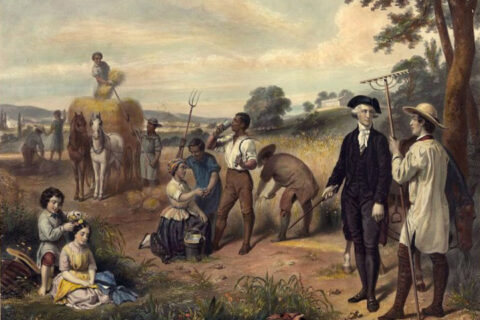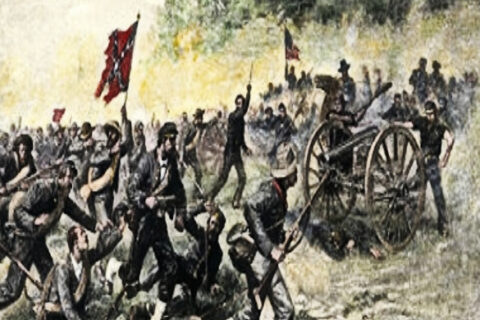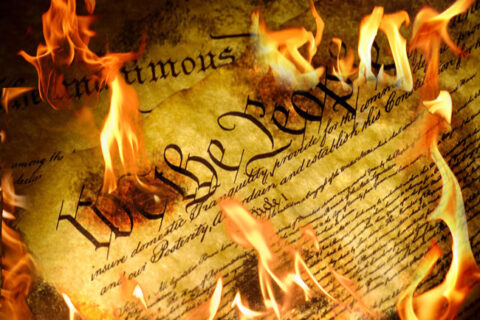We often think that our fight against plutocrats and the ruling class of today as being endemic to our age, but our Southern ancestors have long since understood the importance to monitor and regulate the affects these (((people))) have on our society. Before we were ruled over by a nefarious international cabal of globalists and Jews, there was always been a struggle between the corruption of government and the needs of the average man. The tradition in the South of suspicion and contempt towards centralized power stems back all the way to colonial days, and it is important that we keep these events in our collective memory so that we may recognize the dangers they present in our modern day.
Bacon’s Rebellion took place in 1676 in the frontier lands of Virginia, led by its namesake Nathaniel Bacon, against the governor, William Berkeley and his group of loyalists. The colonists had been expanding westward from the Chesapeake Bay, and were under attack by the Doeg Amerindians. Several historians, such as (((Eric Foner))), credit other reasons for the rebellion – like the favoritism Berkeley showed towards the aristocrats in his court. Regardless of the causes, the colonial government was getting friendly with the natives of the area, and was not allowing the colonists to expand westward. Although Berkeley had diversified the economy of the Virginia Colony and allowed for much more independence from the Crown, he was weak on the Indian problem.
So, this put many in the middle-class and yeomanry in a state of anarcho-tyranny (much as we have today), where they were persecuted for celebrating their rights as Englishmen and were castigated for their wish to expand Christendom through westward expansion. So, they did as any Englishmen did, they petitioned their reasons for dissatisfaction with the current government and their grievances were as follows:
- That “upon spacious pretense of public works [he] raised great unjust taxes upon the commonality”;
- Advancing favorites to high public offices;
- Monopolizing the beaver trade with the Indians;
- Being pro-Indian.
And once they enumerated their grievances, they rebelled against said government. Needless to say, Berkeley was recalled back to the Mother Country and was chastised for his unwillingness to answer to the demands of the colonists.
But what does this have to do with our current situation in the South, one may ask? Well, its precedent is twofold: it first allows us to see that our grievances against a hostile ruling class that mishandles its power is historically rooted and that the attacks of an alien outside force can be used to galvanize and energize us. One might think that a revolt like this would have sowed great disunion between poorer whites (indentured servants/ tenant farmers) and the slave owning class, but it did quite the opposite. Racial lines in Virginia soon became much more pronounced, with whites, blacks and Indians all occupying their separate, yet competitive spheres.
The alien Indian soon became the enemy of all colonists who wished to see the colony and her people expand and prosper.
The Southern mistrust of outsiders and established powers runs deep, it is part of our civic and racial culture, and it is to these things that we must turn to if we want to wrestle back control of our government from the (((elite))) and their foreign hordes that only wish to pillage and maraud our communities and our very souls. We must carry out our duties with diligence and gusto, for our enemies are doing this to us at this very moment.
All Southern, nay, European men, have the duty to their ancestors and to their prosperity to see that their righteous will be carried out.




